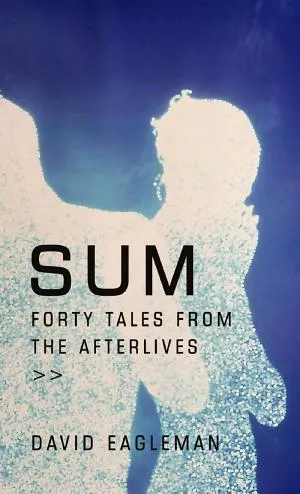
In the afterlife you can enjoy all possibilities at once, living multiple lives in parallel. You find yourself simultaneously eating and not eating. You are bowling and not bowling at the same time. You are horseback riding and nowhere near a horse.
The most important aspect of Her new system is that everyone is treated equally. There is no longer fire for some and harp music for others. The afterlife is no longer defined by cots versus waterbeds, raw potatoes versus sushi, hot water versus champagne. Everyone is a brother to all, and for the first time an idea has been realized that never came to fruition on Earth: true equality.
The Communists are baffled and irritated, because they have finally achieved their perfect society, but only by the help of a God in whom they don’t want to believe. The meritocrats are abashed that they’re stuck for eternity in an incentiveless system with a bunch of pinkos. The conservatives have no penniless to disparage; the liberals have no downtrodden to promote.
So God sits on the edge of Her bed and weeps at night, because the only thing everyone can agree upon is that they’re all in Hell.
Suddenly, for just a moment, you are aware of the problem you overlooked. The more you become a horse, the more you forget the original wish. You forget what it was like to be a human wondering what it was like to be a horse.
This moment of lucidity does not last long. But it serves as the punishment for your sins, a Promethean entrails-pecking moment, crouching half-horse half-man, with the knowledge that you cannot appreciate the destination without knowing the starting point; you cannot revel in the simplicity unless you remember the alternatives.
And that’s not the worst of your revelation. You realize that the next time you return here, with your thick horse brain, you won’t have the capacity to ask to become a human again. You won’t understand what a human is. Your choice to slide down the intelligence ladder is irreversible. And just before you lose your final human faculties, you painfully ponder what magnificent extraterrestrial creature, enthralled with the idea of finding a simpler life, chose in the last round to become a human.
We felt honored at first to be the cells that form God’s body, but then it became clearer that we are God’s cancer.
The debate about God’s gender is misdirected. What we call God is actually a married couple. When they decided to create humans in their own image, they compromised and manufactured approximately equal numbers of both genders.
Although we credit God with designing man, it turns out He’s not sufficiently skilled to have done so. In point of fact, He unintentionally knocked over the first domino by creating a palette of atoms with different shapes. Electron clouds bonded, molecules bloomed, proteins embraced, and eventually cells formed and learned how to hang on to one another like lovebirds. He discovered that by simmering the Earth at the proper distance from the Sun, it instinctively sprouted with life. He’s not so much a creator as a molecule tinkerer who enjoyed a stroke of luck: He simply set the ball rolling by creating a smorgasbord of matter, and creation ensued.
If these people were able to completely shake their traditions, the claims of their ancestors, the songs of their childhood—She reasons—they would have a decently clear shot at the right answer. And this is why She was always leery of apostates, those who rejected the particulars of their religion in search of something that seemed more truthful. She disliked them because they seemed the most likely to float a correct guess. If you assumed that God is fond of those who hold loyally to their religions, you were right—but probably for the wrong reasons. She likes them only because they are intellectually nonadventurous and will be sure to get the answer just a bit wrong.
The next time you are pursuing a new lover in the afterlife, perhaps sharing a bottle of wine after what appeared to be a chance encounter, don’t be surprised if both a Rewarder and a Punisher sneak up behind you. The Rewarder whispers into one of your ears, Isn’t it wonderful to understand the code? The Punisher hisses into your other ear, Does understanding the mechanics of attraction suck all the life out of it?
Such a scene is typical of the afterlife, and illustrates how much both parties have overestimated us. This game always ends in disappointment for both sides, who are freshly distraught to learn that being let into the secrets behind the scenes has little effect on our experience. The secret codes of life—whether presented as a gift or a burden—go totally unappreciated. And once again the Rewarder and the Punisher skulk off, struggling to understand why knowing the code behind the wine does not diminish its pleasure on your tongue, why knowing the inescapability of heartache does not reduce its sting, why glimpsing the mechanics of love does not alter its intoxicating appeal.